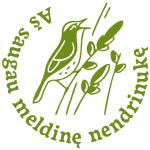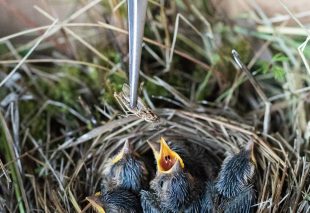

Čia galite rasti visų pranešėjų pristatymus bei renginio ataskaitą. Dokumentai – anglų kalba.
Pristatymai, anglų k.:
Opening words, introduction to the Seminar and the project “Baltic Aquatic warbler”, Žymantas Morkvėnas, Baltic Environmental Forum
Conservation efforts, achievements and latest developments towards securing favourable conservation status of globally threatened species in European Union, Micheál Ó Briain, Deputy Head of Nature Unit, European Commission
Session I: Restoration of Aquatic warbler habitats: habitat quality in species range, restoration tools and techniques, progress achieved, stories of success and challenges
Update on the global situation and the conservation status of Aquatic warbler, Dr. Martin Flade, Chairman of International Aquatic Warbler Conservation Team
Towards favourable conservation status of Aquatic warbler: habitat restoration strategy and conservation mechanism, Dr. Jarosław Krogulec, OTOP, International Aquatic Warbler Conservation Team
Achievements, challenges and successes of the “Baltic Aquatic warbler” project and Aquatic warbler population trend in Lithuania, Žymantas Morkvėnas, Baltic Environmental Forum; Dr. Žydrūnas Preikša, Aleksandras Stulginskis University, International Aquatic Warbler Conservation Team
Current state and perspectives of restoration of Aquatic warbler breeding range outside European Union (experience from Belarus), Dr. Alexander Kozulin, Scientific and Practical Centre for Bio-Resources
Session II: Stakeholder engagement for securing Aquatic warbler breeding success
Stakeholder engagement for conservation of Aquatic warbler: achievements and lessons learned from experience in Lithuania, Radvilė Jankevičienė, Baltic Environmental Forum
Contribution of agri-environmental measures under Rural Development Programmes for the Aquatic warbler conservation in Lithuania and Poland: comparative overview and local experiences, Žymantas Morkvėnas, Baltic Environmental Forum; Dr. Jarosław Krogulec, OTOP
Session III: Establishment of long-term habitat maintenance mechanisms for Aquatic warbler conservation
Use of late-cut biomass as product from Aquatic warbler habitats – Lithuanian experience, Arūnas Pranaitis, Žuvintas Biosphere Reserve
Biomass use from Aquatic warbler conservation experience in Poland, Dr. Jarosław Krogulec, OTOP, International Aquatic Warbler Conservation Team, Dariusz Gatkowski, OTOP
Fire management as habitat restoration and maintenance mechanism – experience of successes and challenges from Belarus, Dr. Alexander Kozulin, Scientific and Practical Centre for Bio-Resources
Session IV: Future plans and perspectives for securing favorable conservation status of globally threatened Aquatic warbler
Future strategy for conservation of Aquatic warbler in its breeding grounds, Dr. Jarosław Krogulec, OTOP, International Aquatic Warbler Conservation Team
Introduction to the future ideas of Aquatic warbler conservation in Lithuania and Belarus, Žymantas Morkvėnas, Baltic Environmental Forum; Dr. Alexander Kozulin, Scientific and Practical Centre for Bio-Resources
Current research on AW ecology in SE-Polish breeding sites and its potential contribution to AW conservation, Joana Dziarska, Department of Zoology, Poznan University of Life Sciences; ACROLA
Status and evolution of the Aquatic Warbler wintering sites in West Africa, Cosima Tegetmeyer, Greifswald Mire Centre, International Aquatic Warbler Conservation Team
The African-Eurasian Migratory Landbirds Action Plan: an Introduction, Borja Heredia, UNEP/CMS Secretariat, Dr. Samuel Temidayo Osinubi, BirdLife International










Komentarų nėra